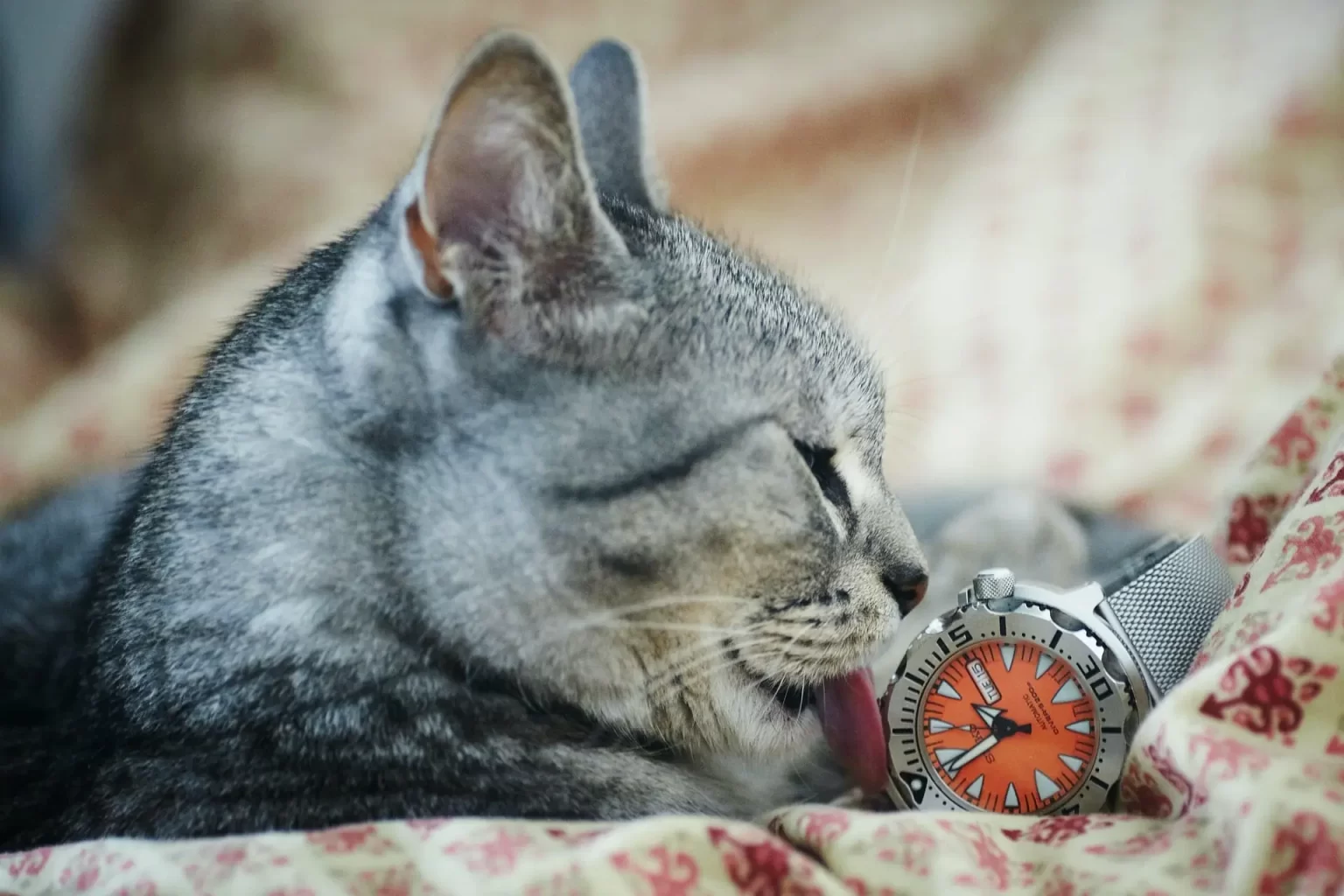Felines are very affectionate. Whenever they can, they rub themselves against their owners’ legs. Unlike dogs, cats don’t tend to lick, and their tongues feel like sandpaper. However, why do cats have a rough tongue? Learn it!
Everyone knows that pussies are very clean. They spend 30% to 50% of their day cat bathing. With the licks, they keep the hair aligned and free of knots, in addition to removing all possible dirt from the body. Next, learn more about the feline language.
Other reasons why cats lick themselves
When licking, the cat massages the skin with its tongue, improving blood circulation. This leaves the skin and coat healthier. Licking also spreads the fat produced by the sebaceous glands better, keeping the coat shiny.
Licking has a calming effect
The cat practices stretching and relaxing while licking itself! When trying to reach every inch of his body, he lifts and stretches his legs, bends his spine, and performs positions that would make any yoga practitioner envious!
Relaxation is a memory of a mommy cat. She licks her puppies for several reasons, mainly to keep the babies calm. The adult pet repeats the ritual he learned from his mother to relax.
Help with nutrition
The cat’s rough tongue has a primary function in capturing food. In wild cats, it helps remove the prey’s skin and meat that is stuck to the bones.
It’s refreshing
When the feline licks itself, it leaves its hair a little wet. This helps the furry friend to cool off. One of the interesting facts about cats is that they do not have sweat glands throughout their bodies. Therefore, licking helps reduce body temperature on hot days.
Survival instinct
Have you noticed that the cat cleans itself after eating? This comes from the species’ ancestors, who cleaned themselves after eating prey, preventing the smell of food from attracting predators. However, you might want to know what this has to do with the question “Why do cats have a rough tongue?”.
“Thorns” in the tongue
The cat’s tongue is rough due to the differentiation of taste buds. While human and dog hair are round and soft, cat hair is pointed, sloping, and keratinized.
Keratin is the same layer that we have on our nails, which is hard. So why do cats have a rough tongue? It is due to this substance that surrounds the taste buds, making them resistant!
One more interesting fact: these “thorns” on feline tongues are retractable, just like their claws. When the cat is not licking itself, the taste buds are “lying down” and aligned over the tongue.
This ability to retract the spine causes the hair that is stuck there to come out and be swallowed, forming the famous hairballs, which the pet can vomit or eliminate through feces.
Water bath for cats
Since the cat’s tongue is powerful, promoting cleaning and shedding of hair, is it necessary to bathe felines with water? The answer is: that it depends. This varies depending on the cat’s coat.
If the animal has short or semi-long hair, licks are enough to keep the coat aligned and free of knots. However, cats with long hair need extra help.
They need to be brushed daily, effectively. This helps remove dead hair, reducing the chance of knots forming and reduces hair ingestion and the formation of hairballs in the pet’s stomach.
What does it mean when the cat licks me or the other animals in the house?
This means he considers you a member of the family! Mothers lick their young as a way to bond them, leaving them with the group’s scent. This doesn’t explain why cats have a rough tongue, but it shows how nice it is to be licked by a feline, right?
This is also a form of demarcation for members of this group to recognize each other. Therefore, the kitten licks you and the other animals in the house, leaving them all smelling the same!
For the same reason, many cats blow at each other who have just returned from bathing and grooming! As the smell is not the same, they do not recognize the individual and treat him as a stranger.
The tongue is not to blame for cats’ selective appetite!
Cats’ taste buds do not sense sweet flavors. Furthermore, they recognize very few other tastes. While humans have 4000 to 8000 taste buds, felines only have 400.
So why are they so selective about what they eat and difficult to fool when giving medicine? The sense of smell is to blame, 15 times more acute than that of humans, in addition to the presence of an auxiliary organ, the vomeronasal organ!




